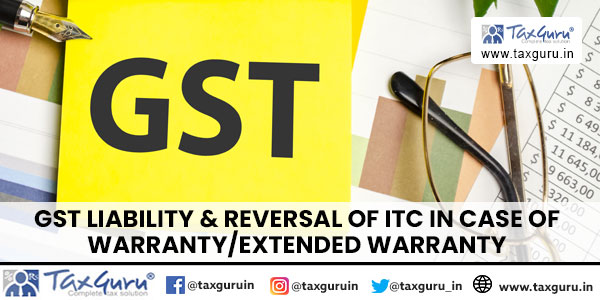SEBI would like to appreciate the effort and time that has been put in by IMF and World Bank team to assess the Indian securities market including the securities settlement systems and central counterparties in the securities markets. The third party assessments and suggestions like the ones provided by the FSAP are very important to us as it highlights areas that may contribute toward further improvement of the system.
Since the last FSAP assessment in 2001, Indian securities market has undergone a sea-change with major improvements in areas of regulatory framework, range of products, growth and reach of market, technology, investor participation, etc. The current FSAP assessment recognizes the significant progress made by SEBI, stock exchanges, clearing corporations, and depositories in the implementation of the IOSCO Principles since the 2001 assessment.
The detailed assessment report (DAR-IOSCO) recognises that the regulatory and supervisory regime for securities market is well developed and largely in compliance with international standards. SEBI has clear regulatory framework for all market segments and products including the structure and operations of collective investment schemes.
SEBI has built the reputation of a credible enforcement agency. The level of enforcement action taken by SEBI is very high. SEBI has used warnings and letters of deficiency to address findings from inspection reports, although in a few cases ‘harder’ measures, such as disgorgement and payment of money under adjudication or consent proceedings, have been imposed. The enforcement actions taken by regulator are very high compared to other jurisdictions.
In the report, it has been suggested that the SEBI should focus on the strengthening of the supervision of securities market intermediaries including fund managers. One of the challenges faced by the authorities is the sheer number of the intermediaries operating in the securities market. Onsite inspections of brokers are primarily a responsibility of the stock exchanges. The stock exchanges have developed a risk based approach to determine the intensity of the inspections. Theme-based inspections have been carried out by SEBI in respect of market intermediaries, mutual funds, depositories, stock exchanges, etc.
In respect of mutual funds, SEBI has taken several steps to re-energise mutual fund industry to increase product penetration especially in smaller cities/towns, regulation of distributors and issues concerning investor protection, develop a long-term policy for the sustainable growth of the industry and mobilization of household savings for the growth of the economy and increase household savings through mutual funds. The comprehensive guidelines for registration and supervision of mutual funds are issued by SEBI by way of SEBI (Mutual Fund) Regulations, 1996 and circulars issued there under. The supervision system of mutual funds is a two-tier system, i.e., supervision by trustees on one hand and SEBI on the other hand. Mutual funds are required to periodically report their operations/activities to SEBI and a risk-based approach is followed for periodic inspections.
As regards better auditing and accounting standards in the securities market, the Companies Act and Chartered Accountants Act provide a framework to maintain objectivity and integrity of accounting and audit. The Government of India has set up Quality Review Board (QRB) for reviewing the quality of auditors. The Companies Act, 2013 contains provisions for establishment of an independent quasi-judicial agency, the National Financial Reporting Authority, to oversee the functions of Auditors and to ensure scrutiny and compliance with accounting and auditing standards. The National Financial Reporting Authority (NFRA) is an overarching body to oversee the accounting profession. SEBI has set up a Forensic Accounting Cell on February 7, 2012 to improve quality of financial information disclosed and to assist in detection of financial irregularities. To enhance the quality of financial reporting done by listed entities, SEBI has set up a Qualified Audit Report Review Committee (QARC) on which ICAI, Stock Exchanges and others are represented.
Recently, the ICAI institute has recommended a new roadmap for convergence of Indian accounting standards with International Financial Reporting Standards (IFRS). If accepted by the Ministry of Corporate Affairs, companies with a net worth of over Rs 1,000 crore will have to prepare financial statements as per IFRS converged Indian Accounting Standards (IND-AS) from April 1, 2015. For companies with net worth of Rs 500-1,000 crore, the recommended date for transition is April 1, 2016. For all other companies (including listed ones), the recommended date is April 1, 2017. The proposed roadmap does not cover banks and insurance companies. It is for the respective sectoral regulators — Reserve Bank of India and Insurance Regulatory and Development Authority — to decide the date of transition.
SEBI welcomes the recommendations of the detailed assessment report (DAR CPSS-IOSCO) that the legal backing of the clearing and settlement process be improved by addressing the issues of finality and netting at the level of law. SEBI has already taken action to recommend amendments to the Securities Laws to provide for finality of settlement obligations and netting. Additionally, on June 25, 2013, SEBI Board has also approved amendments to Securities Contracts (Regulation) (Stock Exchanges and Clearing Corporations) Regulations, 2012 with respect to netting, settlement finality and rights of Clearing Corporations over collaterals.
The assessment has acknowledged the comprehensive risk management framework prescribed by SEBI as one of the pillars of the Indian securities settlement system. The system of online real-time margining, requirement for participants to deposit liquid collateral with the CCPs, real-time disablement of trading facility of the participants on exhaustion of the collateral, default management procedures including segment-wise settlement guarantee fund to cover the residual risk associated with defaults, inter-linkages between depositories, market-wide circuit filters and security specific price bands, etc, have prevented occurrence of any major defaults in the last decade. Further, the assessment report also suggests strengthening of the stress testing procedures of the CCPs and to improve the liquidity risk management. It may be noted that SEBI has initiated the process to strengthen the stress testing procedures of CCPs.
Source- SEBI
























